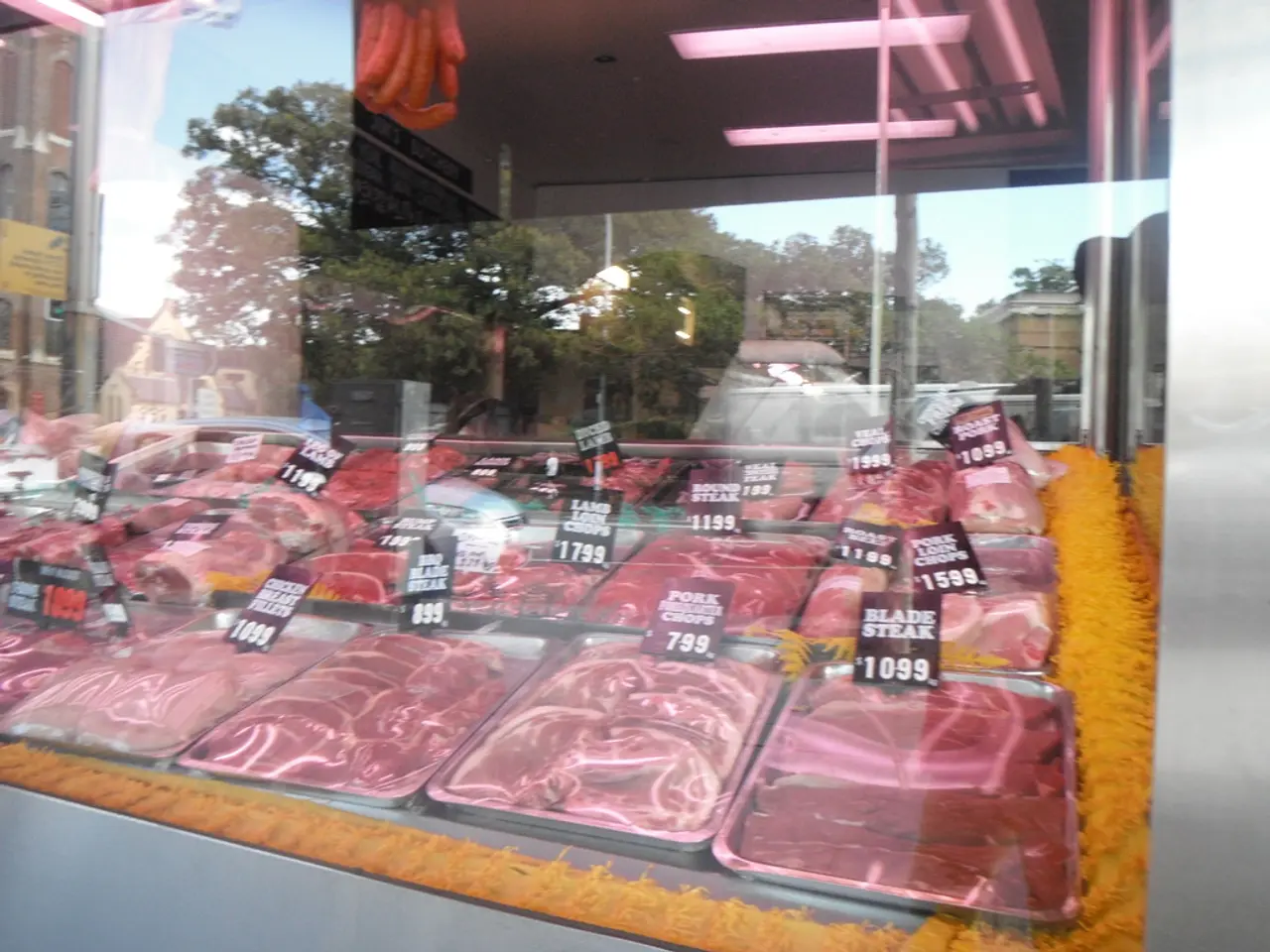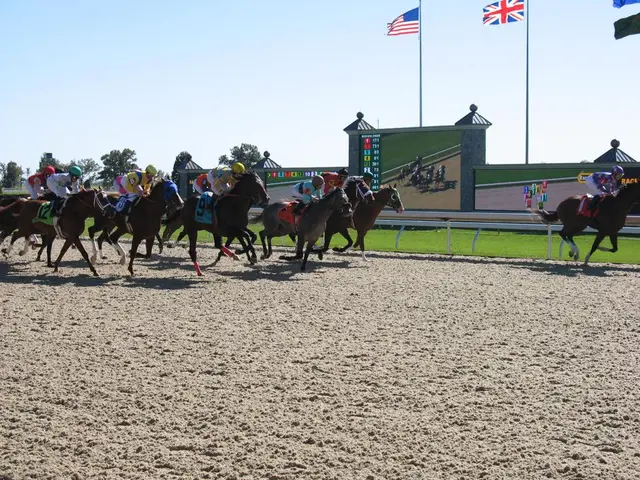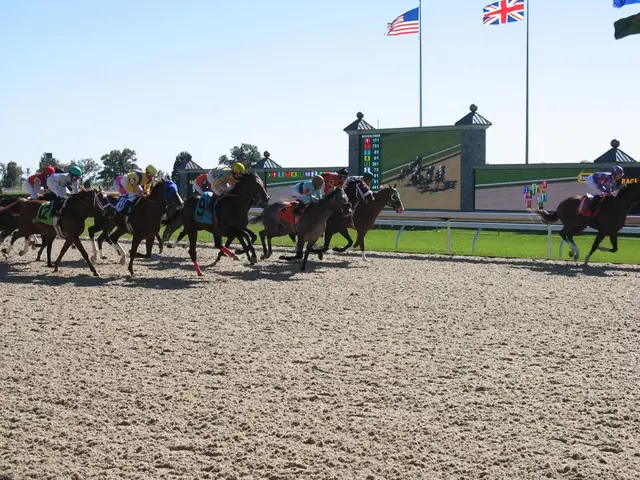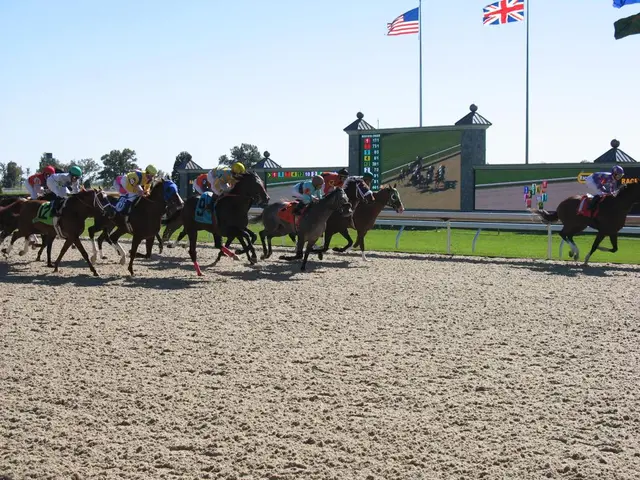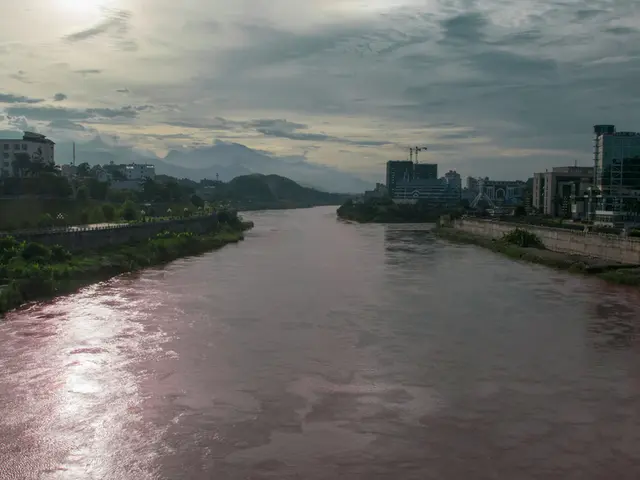Football matches in Dar es Salaam pair sports excitement with culinary delights, featuring game meats.
At Benjamin Mkapa Stadium, the African Nations Championship (CHAN) is underway, but for Lodga Gabriel, the manager of A Class Services Butchery, it's just the beginning of a celebration of Tanzania's culture and hospitality. Outside Gate A, a bustling meat zone greets visitors with the welcoming words "Karibu Nyamapori Tanzania."
In this vibrant market, the aroma of spiced wild meat roasted over charcoal draws fans in. Buffalo, antelope, gazelle, and wildebeest are on offer, with buffalo meat being a personal favorite for many customers.
Lodga Gabriel's role extends beyond commercial interests. He sees his work as a means to showcase Tanzania's wild meat as a source of pride and heritage. Ndota Ney, a customer, finds the antelope meat sweet and more nutritious than domestic meat, believing it to have medicinal properties that make one strong.
Mahmoud Ali, another customer, shares similar sentiments. He prefers wild meat due to its medicinal properties, as wild animals eat different types of plants. He also believes the CHAN tournament has brought blessings and has a positive impact beyond football.
The wild game meat trade in Tanzania has a complex history intertwined with traditional practices, conservation efforts, and modern regulatory challenges. Historically, indigenous groups like the Maasai relied mainly on livestock, while hunting wild game was less central to their diet and economy. However, wildlife has been hunted in Tanzania both for local consumption (bushmeat) and for sport hunting, especially in designated areas through regulated safari hunting programs.
The regulation of wild game meat and hunting in Tanzania is influenced by conservation priorities and wildlife management laws. The government controls hunting through licenses and permits, often linking hunting to conservation funding by enabling sport hunting under strict quotas and seasons. Conflicts have arisen when private hunting concessions overlap with indigenous peoples’ land rights.
Tanzania's game meat trade became legal in 2020, aiming to combat poaching and formalise a trade that long existed informally in rural areas. The Wildlife Conservation (Game Meat Selling) Regulations, 2020, place oversight with the Tanzania Wildlife Management Authority.
While there is no direct evidence that the wild game meat trade is officially connected to sports events like the CHAN tournament, major events that draw international visitors in East Africa sometimes lead to increased demand for traditional and exotic foods, which could indirectly affect wildlife exploitation and bushmeat markets.
In conclusion, Tanzania's wild game meat trade is primarily regulated through conservation laws tied to hunting permits, while traditional hunting and bushmeat trade persist, often with complex social and ecological consequences. Sports events like CHAN do not have a documented official or direct role in this trade. However, they may indirectly contribute to the demand for wild game meat, making it an integral part of Tanzania's cultural celebrations.
The aroma of spiced wild meat roasted over charcoal at the bustling market outside Gate A of Benjamin Mkapa Stadium attracts football fans, with many favoring buffalo meat. Lodga Gabriel, the manager of A Class Services Butchery, not only runs a successful business but also sees his work as a way to showcase Tanzania's wild meat as a source of pride and heritage. Football matches, such as the African Nations Championship (CHAN), also have a positive impact beyond sports, as Mahmoud Ali believes, as they bring blessings and potentially contribute to the demand for wild game meat, making it an integral part of Tanzania's cultural celebrations.
